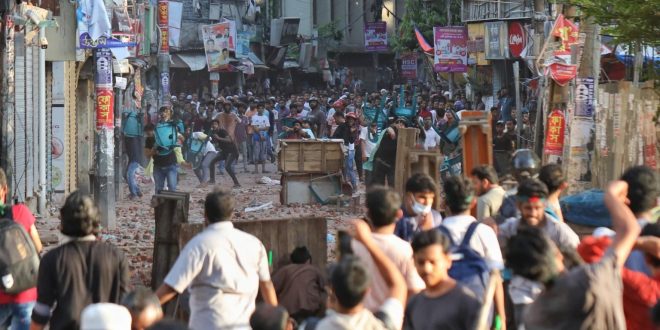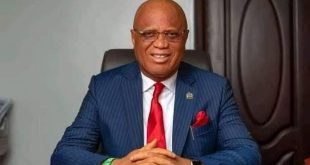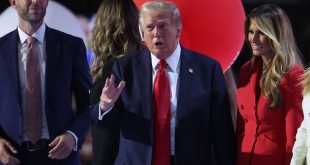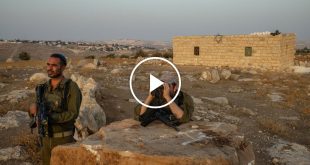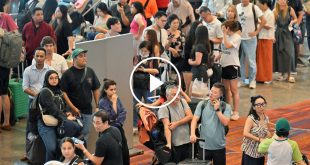
UNITED NATIONS, Jul 19 (IPS) – Student protests over the Bangladesh government’s recruitment system have escalated into violent retaliation from the police and the leading party’s student wing.
Today (Friday, July 19), violent clashes continued to rock Dhaka, Bangladesh’s capital, and the northern city of Rangpuras, where university students continued their protest over the government’s civil service recruitment system. AFP reports reports the death toll reached 105.
The quota system, as it is known, now reserves 56 percent of positions in the civil service to certain groups: 10 percent to women, 10 percent to those from underdeveloped districts, 5 percent to indigenous peoples, 1 percent to people with disabilities, and 30 percent to those who fought in the 1971 war of independence, along with their descendants.
In June, Bangladesh’s High Court ruled to reinstate the measure to reserve jobs for indepdendence fighters, which had been previously abolished by Prime Minister Sheikh Hasina in 2018.
Students and young workers raised concerns that this system did not reward merit but rather favored those affiliated with the Awami League, the ruling party.
Since then, students have been demanding a reform to the quota system. This comes at a time when the unemployment rate is at 40 percent for youth who are neither working nor in university.
On July 14, Hasina implied that the protestors were “razakars,” a contentious term in Bangladesh as it refers to the people who supported Pakistan during the 1971 war, traitors in the eyes of the Bangladeshi people. The comments from Hasina caused outrage among students and they decried them during the protests.
The escalation into violence began on July 15, when protestors were attacked by members of the Bangladesh Chhatra League (BCL), the student wing of the Awami League. Reports emerged of heavily armed BCL members attacking indiscriminately against unarmed protestors, including women and younger students.
The government consequently called for all university campuses to shut down amid the tensions. The police force was sent in to suppress the movement, where they have used rubber bullets and tear gas against students.
Protests and the resulting violent clashes have broken out all over the country, including Chittagong, Rangpur, and Dhaka.
On Thursday, the government deployed the military, namely the Rapid Action Battalion (RAB). Since then, at least 105 deaths have been reported and over 25,000 people have been injured during the protests. This number could be much higher.
Since July 18, internet and phone communications have been shut down, first in select areas and now across the country.
The internet shutdown has also meant that the websites of some major news outlets, such as the Daily Star and Bangladesh have gone offline. Just prior to the shutdown, the BCL’s official website was hacked with a message that reads “Hacked by THE R3SISTANC3.”
There are also reports that the official websites of the police and the prime minister’s office were also hacked with messages reading, “Stop killing students” and “It’s not a protest anymore, it’s a war now.”
Amid the protests, the government announced on Thursday announced that it would be willing to sit down with protestors to discuss their demands for reform to the quota system.
Law minister Anisul Haq said that discussions would be held whenever the student protestors agreed. Student protestors have so far denied this call to action, with one student telling the BBC on Thursday, “The government has killed so many people in a day that we cannot join any discussions in the current circumstances.”
UN High Commissioner for Human Rights Volker Türk expressed concern for the violation of human rights and has called for impartial investigations into the attacks.
“The government should take the necessary measures to ensure the protection and safety of the students participating in peaceful protests, and to guarantee the right to freedom of assembly and expression without fear of attacks against their lives and physical integrity, or other forms of repression,” he said. “Bangladesh’s political leaders must work with the country’s young population to find solutions to the ongoing challenges and focus on the country’s growth and development. Dialogue is the best and only way forward.”
UN Secretary-General Antonio Guterres expressed deep concern about the violence and called for “restraint on all sides.”
In a statement issued on Thursday, he called for authorities to “investigate all acts of violence, hold perpetrators to account, and ensure a conducive environment for dialogue.”
IPS UN Bureau Report
Follow @IPSNewsUNBureau
Follow IPS News UN Bureau on Instagram
© Inter Press Service (2024) — All Rights ReservedOriginal source: Inter Press Service
 Top Naija News – Nigeria News, Nigerian News & Top Stories Top Naija News – Nigerian Newspapers, Nigerian News. topnaijanews is a daily Nigerian newspaper covering Latest News, Breaking News, Entertainment, Sports, Lifestyle and Politics.
Top Naija News – Nigeria News, Nigerian News & Top Stories Top Naija News – Nigerian Newspapers, Nigerian News. topnaijanews is a daily Nigerian newspaper covering Latest News, Breaking News, Entertainment, Sports, Lifestyle and Politics.
